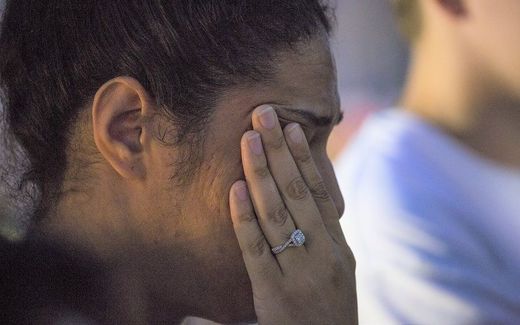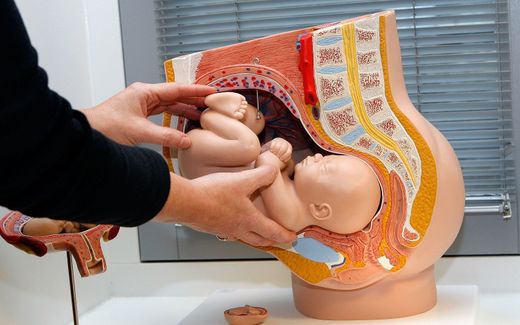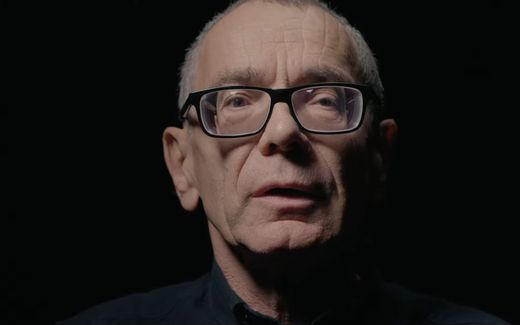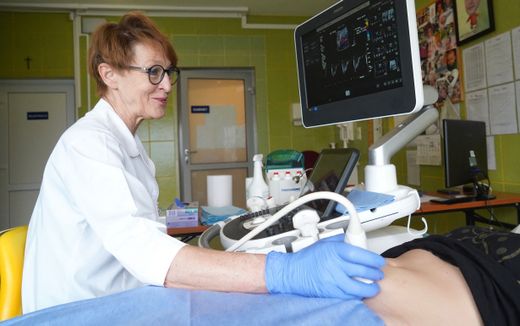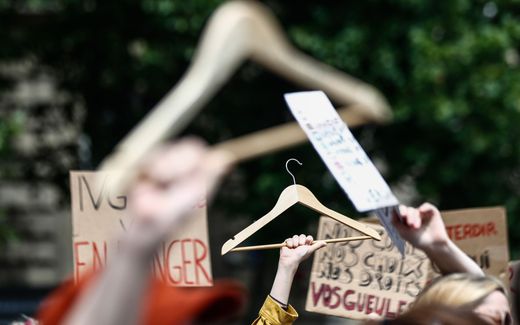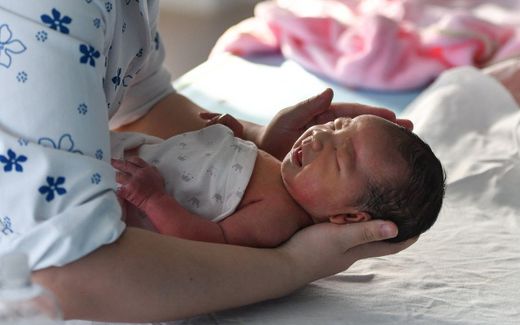Do women regret their abortion? Why the debate never ends
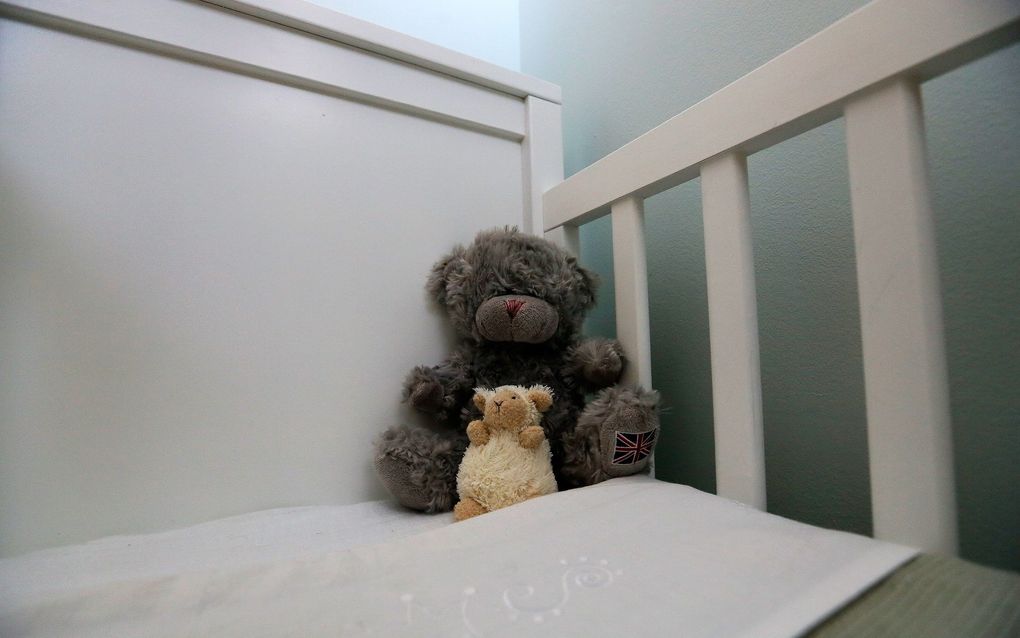
Women who chose abortion to end their pregnancy will not have a baby in their crib. Some regret their choice. Photo ANP, Bas Czerwinski
Christian Life
As soon as the Austrian Petra Plonner stepped out of the abortion room, she knew that she did something that was wrong. She felt she had killed her child. But there was nothing she could do about it now anymore.
Complete panic, that is what Plonner remembers from her first medical appointment after she suspected that she was pregnant. “I had great plans for my future. I wanted to go to Italy for a year. I wanted to be successful and establish myself. At that point in time, I had not even remotely thought of a child. It didn't fit into my life situation at all”, she tells more than 30 years after.
It was not that she did not like children. Or that her parents would refuse to take care of her and the baby. Instead, she felt threatened by the little human growing in her womb.
The decision to remove the unborn baby was made in a few days. The whole abortion procedure took place in a couple of hours. The physical consequences were not worth mentioning. Yet, Plonner felt deeply unhappy. As soon as she walked out of the door of the clinic on the eighth floor of the hospital, she regretted her decision.
Contradictions
Abortion regret can be a matter of emotional debate. Pro-choice people claim that grown-up women never doubt their decision. Pro-life activists doubt that and sometimes claim that termination can be the cause of depression.
Regret has been the subject of several academic studies. One of the most well-known studies is the Turnaway research from 2021. Researchers looked into the impact of abortion on the mental health of women up to five years after the procedure. They interviewed the participants every six months over the phone. The study also included feelings of guilt and regret. The conclusion seemed to be clear and without possible misinterpretation: 99 per cent of the women who underwent an abortion did not regret their decision.
However, there is also the study “The Effects of Abortion Decision Rightness and Decision Type on Women’s Satisfaction and Mental Health” from 2023. This study, conducted by Dr. David C. Reardon, concludes that only 33 per cent identified their abortions as wanted. A clear majority, the study points out, described the termination of their pregnancy as “accepted but inconsistent with their values and preferences” (43 per cent) or “unwanted or coerced” (24 per cent). In addition, 60 per cent of the respondents indicated that they would have preferred to give birth if they had more emotional support or better financial security.
Interestingly, the latter percentage is very much confirmed in the Turnaway study. Besides the conclusion that almost no women regret their abortion, they also found that about 96 per cent of women who were refused an abortion turned out to be happy with their child within five years after being turned away by an abortion clinic.
Reardon is critical of the Turnaway study, pointing out that its findings have been called into question due to a low participation rate, among other reasons. In addition, he points out from his research that only a third of women see their abortion as wanted and warns that they are most likely over-represented in abortion studies by clinics.

According to Reardon, women are more likely to attribute negative emotions to their abortions if they felt pressured into their decision. To what extent these women experience regret as well remains unclear for now, he acknowledges. Therefore, he pleads for more research to “understand better the experience of the two-thirds of women for whom abortion is unwanted, coerced or otherwise inconsistent with their values and preferences.”
For Plonner, this is clear. Women who experienced external pressure to have an abortion, are more likely to regret this, she says. However, she emphasises that these women are also less likely to speak out about their feelings. “Especially if they were forced by someone they loved, their mother or partner, for example, they may feel a strong need to protect these people.”
Practice
That there are women who regret their choice for abortion is undeniable, Kees van Helden and Chris Develing say. Both men work for a Christian organisation in the Netherlands; Van Helden is part of Kies Leven (Choose Life) and Develing works for the NPV – Care for Life (NPV – Zorg voor het leven).
Van Helden encounters women who underwent an abortion in his daily work as pro-life activist. A few years ago, for example, he spoke in a broadcast about the topic of pregnancy termination. After that, he received several e-mails from women who had ended their pregnancy. “They wrote: “Sir, why were you not there twenty years ago? If you had been there, I would still have my child.” Such stories touch me.”
Develing points out that the Dutch expert organisation on unwanted pregnancies, Fiom, encounters several women who regret their abortion. “There are several testimonies on the website that speak about this”, he says.
It is likely that the percentage of women regretting their abortion is higher than one per cent, both Develing and Van Helden believe.
At the same time, Develing is careful with giving exact percentages when it comes to abortion regret. “Of course, counsellors only receive the women who need help. Those who feel good after an abortion will not go there. That can distort the image.”
Fraction
Petra Plonner –now director of the Austrian pro-life organisation Fairändern– is convinced that many women who regret their abortion do not speak out and hide their true feelings about the termination of their pregnancy. Therefore, she argues that the percentages of abortion regret in research data are only a fraction of the real number of women who suffer after their abortion.
“If you ask women shortly after their abortion about their experiences, most of them will say they felt relieved because their problem of pregnancy was solved”, she explains. Instead, a long-term study is needed, Plonner believes. However, she acknowledges that it is very difficult to carry out a study like that. “I don't know if women would dare to speak out after many years if they kept it a secret. So many of them don't talk about their abortion, because they feel that it was their own choice, and they have no right to mourn this choice.”
Taboo
Sophie Bolt, from the Dutch organisation Fiom, nuances these testimonies. She stresses that Fiom does not encounter such high percentages of women who regret their abortion. “Since last year July, Dutch counsellors had about 100 conversations with women who struggled with their feelings after an abortion. In the Netherlands, there are about 30,000 abortions a year. So only a small share of the women looks for help. And of this group, only a few women experience feelings of regret. These low rates are consistent with the findings in the Turnaway study.”
At the same time, Bolt acknowledges that women can go to other organisations for help as well, so Fiom does not see all of them. And she recognises the statement that abortion can be a big taboo for women, who, as a result, do not seek help and talk about it. Yet, she would be surprised if that group was so big that the total percentages of abortion regret would grow to over one per cent.
Terms
It is difficult to measure feelings of remorse about abortion, Develing admits. Often, a woman experiences mixed feelings after an abortion, for example, grief, pain, sometimes regret or on the contrary, relief. And these feelings do not need to always be the same from day to day either, he stresses.

Often, pro-choice activists accuse pro-life organisations of mixing up these terms when assessing the extent of abortion regret. They say that it is normal for women to experience pain and sadness after an abortion, but that most women do not regret their choice. However, for Van Helden and Develing, it is clear. Regret is the feeling that you would not make the same choice again if you had a chance to go back in time, they say.
Credible
Sophie Bolt from Fiom thinks it is difficult to provide hard data on the number of women who regret their abortion. Her critique on scientific studies from both pro-life and pro-choice activists is that both of them politicise the topic. “Even when the scientific results are quantitative, researchers can choose to interpret the data one way or the other. If your convictions are very pro-life or very pro-choice, you are at risk of overlooking the other side. If you are only pro-life, you may not have eyes for women who don't struggle with their abortion. And if you are pro-choice, you may overlook the women who do think about it years after their decision. Often, reality is grey. Women can experience contradicting and ambivalent feelings, for instance relief and sadness, or thankfulness and grief. They can feel also feel regret, for instance, regret getting pregnant, without regretting their decision to terminate the pregnancy in itself.”
Dr. David Reardon, who conducted the study on the effects of abortion decision rightness, does not believe that his own pro-life convictions influence the credibility of his research, he writes in an e-mail to CNE.news. “Facts are facts. For both abortion defenders and abortion critics, the irrefutable fact is that nearly every study, of every type, has found that women who have abortions have higher rates of emotional and mental health problems.”
Culture
Feelings of regret can be influenced by cultural factors, the Turnaway study mentioned above concluded. If women grew up in a pro-life environment that condemned abortion, they are more likely to feel guilt, regret and shame after they terminated their pregnancy.
Develing can follow that conclusion to a certain extent. “If you are pro-choice, and you sincerely believe that abortion is not a moral sin, it sounds reasonable that you will not regret your decision as quickly as when you actually believe that abortion kills a child”, he says. “If people around you support abortion, there are fewer triggers to fuel regret. However, I think a mother knows that an abortion ends the life of her child one way or another, whether she believes the child is already here or not.””
Bioethicist Dr Anthony McCarthy affirms this in an academic paper. He argues that “abortion regret is not a mere feeling, but relates to a value or values”. He believes that women can regret their choice because of what “she missed out on or what her foetus missed out on.” And this assessment is dependent on how she sees her unborn child. In any case, McCarthy stresses that women who regret their abortions should not be disregarded, whether they make up only one per cent of more than fifty per cent of the total number of women choosing abortion.
Petra Plonner still deals with feelings of regret, even though her other negative emotions have disappeared when she started believing that “the Lord had forgiven” her abortion. “Sometimes, when I see people in their thirties, I think about the fact that my son could have been like that too”, she says. “I am convinced that my baby was a boy. He has always had a place in my family.”
Related Articles


